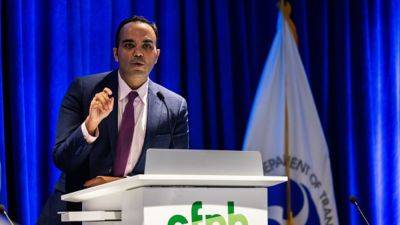Insights for Leaders in Global Custody
Global custody has become an essential component of financial services, providing safekeeping, settlement, and asset servicing for institutional investors across the globe. As the world becomes increasingly interconnected and the demand for cross-border asset management grows, leaders in global custody must stay ahead of trends, regulatory changes, and technological advancements to provide superior services to their clients. This article explores key insights for leaders in global custody as they navigate the complex and evolving landscape of international financial markets.
1. Understanding the Complex Regulatory Environment
One of the biggest challenges for global custody leaders is keeping up with an increasingly complex and fragmented regulatory environment. Different jurisdictions have their own laws and regulations governing the safekeeping and servicing of assets. It is critical for global custody providers to understand these regulations and implement robust compliance mechanisms to ensure their operations are in line with legal requirements.
Regulatory bodies like the European Securities and Markets Authority (ESMA), the U.S. Securities and Exchange Commission (SEC), and others continue to evolve their frameworks to mitigate systemic risks. Keeping up with developments such as the Central Securities Depositories Regulation (CSDR) in the EU or enhanced cybersecurity requirements is crucial. Leaders must also foster open communication with regulators to stay informed and ensure that their firms can adapt swiftly to regulatory changes.
2. Embracing Technology for Greater Efficiency
Technological innovation is transforming the financial services industry, and global custody is no exception. Blockchain, artificial intelligence (AI), and automation technologies offer transformative opportunities for enhancing security, efficiency, and transparency.
Blockchain, in particular, is poised to disrupt the global custody landscape by enabling real-time settlement, reducing transaction costs, and enhancing data security. Smart contracts powered by blockchain technology can automate settlement and clearing processes, eliminating the need for intermediaries and reducing the risk of errors.
AI can be utilized to improve operational efficiency by analyzing vast amounts of data in real time, predicting market trends, and identifying compliance risks. Automation in back-office processes, including reconciliations and reporting, can free up resources for more strategic initiatives, improving the overall client experience.
3. Focus on Cybersecurity and Data Protection
As global custodians handle vast amounts of sensitive client data, cybersecurity has become one of the top priorities. The increasing frequency of cyberattacks and data breaches has led to heightened concerns about the security of client assets and information. Leaders in global custody must continuously invest in cybersecurity infrastructure, from encryption and multi-factor authentication to real-time monitoring and intrusion detection systems.
In addition, global custody leaders need to comply with various data protection regulations, such as the General Data Protection Regulation (GDPR) in Europe, to ensure that client data is handled appropriately. A failure to protect client data can not only lead to financial losses and reputational damage but also to legal consequences. A proactive and adaptive cybersecurity strategy is essential for maintaining trust and protecting clients' assets and information in a digital-first world.
4. Prioritizing Client-Centric Services
In the competitive landscape of global custody, client service differentiation is critical. As institutional investors become more sophisticated, they demand higher levels of transparency, faster processing times, and personalized services. Leaders must continually evaluate their service offerings to meet evolving client needs and ensure they provide added value.
Tailored reporting, real-time data access, and a client-friendly digital interface can greatly enhance the user experience. By leveraging technology and advanced analytics, global custodians can offer actionable insights, such as portfolio performance metrics or risk exposures, empowering clients to make more informed decisions.
Moreover, strong relationships and open communication between custodians and their clients help ensure that services are aligned with client goals and expectations. Custodians must invest in understanding the unique challenges faced by each client, allowing them to offer more personalized and responsive service.
5. Navigating Emerging Markets
Emerging markets present both challenges and opportunities for global custody leaders. While these markets offer growth potential, they also come with regulatory uncertainty, operational risk, and liquidity concerns. Custodians need to be well-versed in the local market conditions, infrastructure, and regulations to effectively support clients looking to invest in these regions.
To mitigate risks, global custody leaders can develop partnerships with local custodians who understand the intricacies of regional markets. This allows global custodians to provide clients with valuable insights into market conditions, regulatory changes, and potential investment opportunities. At the same time, a comprehensive understanding of market infrastructure and counterparty risk is essential for ensuring safe and efficient operations in emerging economies.
6. Environmental, Social, and Governance (ESG) Integration
The rising demand for responsible investing has brought ESG considerations to the forefront of asset management, including global custody. Institutional investors are increasingly focused on sustainability, governance, and social responsibility, and they expect their custodians to integrate ESG factors into their services.
Leaders in global custody should work to ensure that they can provide comprehensive ESG-related data, reporting, and insights to clients. Additionally, custodians may need to adjust their processes to accommodate clients' sustainability goals, such as supporting green bonds or ESG-focused funds. By staying ahead of the ESG trend, global custody providers can not only meet client demands but also contribute to a more sustainable and ethical financial ecosystem.
7. The Importance of Talent and Leadership
In a field as complex as global custody, having a skilled workforce and strong leadership is key to navigating challenges and driving innovation. Leaders must prioritize talent development, focusing on recruiting, training, and retaining professionals with expertise in finance, technology, and regulatory compliance. A forward-looking leadership team that embraces innovation and cultivates a culture of learning will be better equipped to lead their organizations through the dynamic global custody landscape.
Encouraging diversity and inclusion within teams can also foster a more innovative and agile organization, with diverse perspectives contributing to better problem-solving and decision-making.
Conclusion
Global custody leaders play a pivotal role in ensuring the safekeeping, settlement, and servicing of assets in a rapidly evolving and complex financial landscape. By staying informed of regulatory changes, embracing technology, prioritizing cybersecurity, and offering client-centric services, they can enhance operational efficiency and maintain a competitive edge. Leaders must also be agile in navigating emerging markets, integrating ESG factors, and developing a skilled workforce to meet the demands of institutional investors globally.
With resources and platforms like https://globalcustody.pro offering insights into these dynamics, global custody leaders can stay informed, gain insights, and implement the best strategies to drive growth and innovation in their organizations while adapting to the ever-changing financial landscape.






















